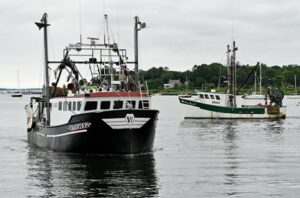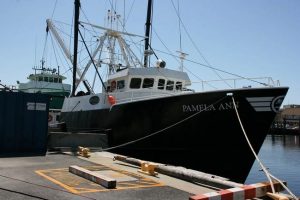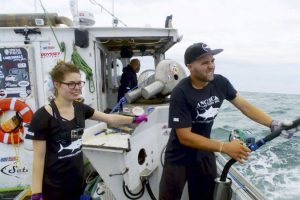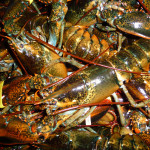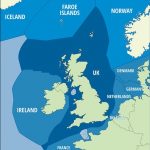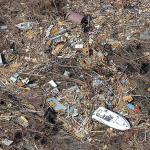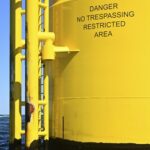Tag Archives: illegal
Federal fisheries officers refusing duties because of violence on the water in N.S.
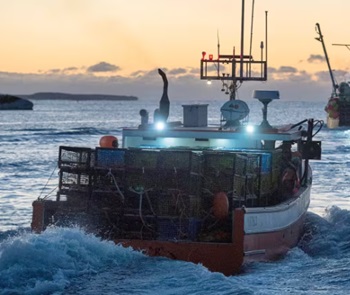 Federal fisheries officers in Nova Scotia say they’re refusing some enforcement duties because of threats to their safety, as they await Ottawa’s response to their complaints. The union representing the officers says its members have been shot at, that people have tried to steal their firearms, and that officers — and their families — have been threatened for trying to stop illegal fishing. Commercial fishers, meanwhile, are calling for increased enforcement, saying that illegal and unregulated fishing is becoming more frequent across the province. “We want real, tangible enforcement activity placed upon the illegal, black market lobster activity that’s ongoing throughout the Maritimes,” said Dan Fleck, executive director of the Brazil Rock 33/34 Lobster Association, in a recent telephone interview. more, >>CLICK TO READ<< 07:52
Federal fisheries officers in Nova Scotia say they’re refusing some enforcement duties because of threats to their safety, as they await Ottawa’s response to their complaints. The union representing the officers says its members have been shot at, that people have tried to steal their firearms, and that officers — and their families — have been threatened for trying to stop illegal fishing. Commercial fishers, meanwhile, are calling for increased enforcement, saying that illegal and unregulated fishing is becoming more frequent across the province. “We want real, tangible enforcement activity placed upon the illegal, black market lobster activity that’s ongoing throughout the Maritimes,” said Dan Fleck, executive director of the Brazil Rock 33/34 Lobster Association, in a recent telephone interview. more, >>CLICK TO READ<< 07:52
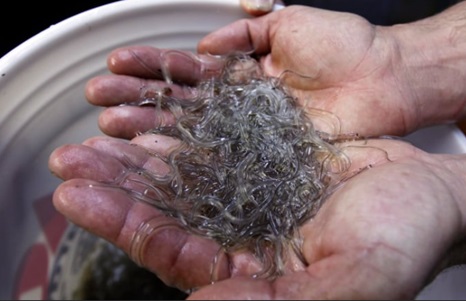
Tonnes of elvers were poached in 2023, but border agents didn’t find any
The disclosure came from Daniel Anson, the agency’s director of general intelligence and investigations, during a recent appearance before the standing Fisheries and Oceans Canada parliamentary committee examining illegal, unreported and unregulated fishing. “We have not had any seizures of elver eels this specific year. We have effected a variety of different examinations to ensure compliance and have not found anything that was illicit or destined abroad that had been harvested illegally or the result of unreported fishing,” Anson testified last week. That was greeted with scorn by one Nova Scotia MP. Elvers are Canada’s most valuable seafood species by weight, fetching up to $5,000 per kilogram. more, >>click to read<< 11:53
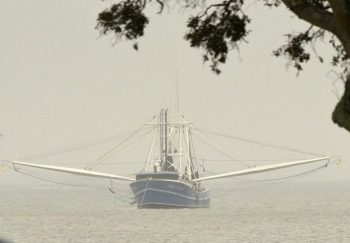
Illegal foreign fishing draws congressional eye
Nathan Rickard, representing local shrimpers through the Southern Shrimp Alliance, was one of the people invited to speak on a panel to the subcommittee. He said federal anti-dumping laws helped provide stability to an industry that received a massive hit from imported shrimp beginning in the late ‘90s. “Although the industry permanently had lost many shrimping families, and has struggled to maintain its foothold in some coastal communities, the threat that the industry would entirely disappear has abated,” Rickard said. “The U.S. shrimp industry currently produced about one out of every eight pounds of shrimp that are consumed in our country. >click to read< 10:10

Wicker advocates for bipartisan bill to end illegal global fishing, seafood trade
U.S. Sen. Roger Wicker (R-MS), a member of the U.S. Senate Commerce, Science, and Transportation Committee, earlier this week questioned whether increased federal action would aide in the halt of illegal fishing and seafood trade in the global marketplace. Sen. Wicker on Aug. 28 introduced the bipartisan Maritime Security And Fisheries Enforcement (SAFE) Act, S. 3400, to address the threat to national security from illegal, unreported and unregulated (IUU) fishing and associated illegal activity, to prevent the illegal trade of seafood and seafood products, among other purposes, according to the text of the bill. S. 3400 calls for “a whole-of-government approach” that would include the intelligence community to help combat IUU fishing,,,>click to read<09:08
Federal Judge Evokes Dr. Seuss in Upholding Seafood Regulations
 Invoking Dr. Seuss, a federal judge on Monday quoted from the 1960 classic “One Fish Two Fish Red Fish Blue Fish” to uphold a regulatory regime intended to cut down on seafood fraud and protect U.S. fishers from unfair competition. Despite a challenge to the rule by a slew of U.S. seafood importers, harvesters and processors, U.S. District Judge Amit Mehta found that the traceability rule, which requires importers to document the supply chain of imports from their origin to their arrival in the U.S., was lawfully implemented by the National Marine Fisheries Service. click here to read the story 18:32
Invoking Dr. Seuss, a federal judge on Monday quoted from the 1960 classic “One Fish Two Fish Red Fish Blue Fish” to uphold a regulatory regime intended to cut down on seafood fraud and protect U.S. fishers from unfair competition. Despite a challenge to the rule by a slew of U.S. seafood importers, harvesters and processors, U.S. District Judge Amit Mehta found that the traceability rule, which requires importers to document the supply chain of imports from their origin to their arrival in the U.S., was lawfully implemented by the National Marine Fisheries Service. click here to read the story 18:32
Fishing Illegally – Menakhem Ben-Yami
 According to the EU, NOAA and other “regulators,” ‘Illegal, Unreported and Unregulated fishing (IUU) depletes fish stocks, destroys marine habitats, distorts competition, puts honest fishers at an unfair disadvantage, and weakens coastal communities, particularly in developing countries,’ etc., etc. The sundry of published documents, articles, and even learned papers, published not only in the fisheries-related, but also in the general press in recent years, are all bombarding us with IUU. If words could sink vessels, there’d be many more wrecks decorating the bottom of the sea. Read the rest here 16:21
According to the EU, NOAA and other “regulators,” ‘Illegal, Unreported and Unregulated fishing (IUU) depletes fish stocks, destroys marine habitats, distorts competition, puts honest fishers at an unfair disadvantage, and weakens coastal communities, particularly in developing countries,’ etc., etc. The sundry of published documents, articles, and even learned papers, published not only in the fisheries-related, but also in the general press in recent years, are all bombarding us with IUU. If words could sink vessels, there’d be many more wrecks decorating the bottom of the sea. Read the rest here 16:21
EU pressure on illegal fishing threatens more than 8,000 Thai fishing boats
 More than 8,000 trawlers in 22 provinces are likely to lose their commercial fishing licences after checks revealed the registration numbers did not match the vessels, and many had failed to renew their permits for years. If all the boats were banned, it would be a terrible blow to the Thai fishing industry, which employs about 300,000 people. The discrepancies were uncovered when the government began regulating all fishing boats to comply with the EU‘s demand last April that Thailand end illegal, unreported and unregulated (IUU) fishing, or lose its market for seafood products. Bangkok was given six months to fall into line. Read the rest here 12:09
More than 8,000 trawlers in 22 provinces are likely to lose their commercial fishing licences after checks revealed the registration numbers did not match the vessels, and many had failed to renew their permits for years. If all the boats were banned, it would be a terrible blow to the Thai fishing industry, which employs about 300,000 people. The discrepancies were uncovered when the government began regulating all fishing boats to comply with the EU‘s demand last April that Thailand end illegal, unreported and unregulated (IUU) fishing, or lose its market for seafood products. Bangkok was given six months to fall into line. Read the rest here 12:09
The House passes The Illegal, Unreported, and Unregulated (IUU) Fishing Enforcement Act
 The U.S. House of Representatives passed legislation cosponsored by Congressman David Jolly, R-Indian Shores, July 27 to fight the problem of illegal fishing from foreign vessels in the Gulf of Mexico. The Illegal, Unreported, and Unregulated (IUU) Fishing Enforcement Act of 2015 (H.R. 774) passed the House by voice vote. The Illegal, Unreported, and Unregulated (IUU) Fishing Enforcement Act stiffens penalties for those caught illegally fishing in U.S. waters by potentially stripping poachers of their boats and equipment and laying the groundwork for criminal charges based on the laws of their home countries. Read the rest here 19:02
The U.S. House of Representatives passed legislation cosponsored by Congressman David Jolly, R-Indian Shores, July 27 to fight the problem of illegal fishing from foreign vessels in the Gulf of Mexico. The Illegal, Unreported, and Unregulated (IUU) Fishing Enforcement Act of 2015 (H.R. 774) passed the House by voice vote. The Illegal, Unreported, and Unregulated (IUU) Fishing Enforcement Act stiffens penalties for those caught illegally fishing in U.S. waters by potentially stripping poachers of their boats and equipment and laying the groundwork for criminal charges based on the laws of their home countries. Read the rest here 19:02
Your Input Needed! Presidential Initiative on Combating Illegal, Unreported, and Unregulated (IUU) Fishing and Seafood Fraud
 To fight seafood fraud and illegal, unreported, and unregulated (IUU) fishing, the Administration is seeking public input, now through June 8, on the principles to be used in determining fish species “at risk” of these illegal activities. The draft principles list will be used to develop a draft list of species for a risk-based seafood traceability program. Comments can be submitted through the Federal Register or attending one of the following webinars, Click here to read the rest and register 19:07
To fight seafood fraud and illegal, unreported, and unregulated (IUU) fishing, the Administration is seeking public input, now through June 8, on the principles to be used in determining fish species “at risk” of these illegal activities. The draft principles list will be used to develop a draft list of species for a risk-based seafood traceability program. Comments can be submitted through the Federal Register or attending one of the following webinars, Click here to read the rest and register 19:07
Texas Rep Sponsors Bill to Stop Foreign and Illegal Fishing in US Waters by Mexican Boats
 A critical vote in a House Committee on Thursday unanimously passed H.R. 774, the “Illegal, Unreported, and Unregulated Fishing Enforcement Act of 2015.” Its goal is to stop foreign and illegal fishing in US waters. The bill provides for increased enforcement activity by the Coast Guard, which stops, seizes, arrests and fines Mexican fishermen poaching in Texas and U.S. waters. Such activity is almost a daily event at Coast Guard bases in South Padre Island, Port Aransas and Port O-Conner. Read the rest here 16:12
A critical vote in a House Committee on Thursday unanimously passed H.R. 774, the “Illegal, Unreported, and Unregulated Fishing Enforcement Act of 2015.” Its goal is to stop foreign and illegal fishing in US waters. The bill provides for increased enforcement activity by the Coast Guard, which stops, seizes, arrests and fines Mexican fishermen poaching in Texas and U.S. waters. Such activity is almost a daily event at Coast Guard bases in South Padre Island, Port Aransas and Port O-Conner. Read the rest here 16:12
United States continues global leadership to address illegal, unreported, and unregulated fishing
 In its 2015 biennial report to Congress on illegal, unreported, and unregulated fishing (IUU), NOAA has identified six nations — Colombia, Ecuador, Mexico, Nigeria, Nicaragua, and Portugal — as engaging in the practice. IUU fishing and seafood fraud undermine international efforts to sustainably manage and rebuild fisheries, and creates unfair market competition for fishermen playing by the rules, like those in the United States. Read the rest here 15:07
In its 2015 biennial report to Congress on illegal, unreported, and unregulated fishing (IUU), NOAA has identified six nations — Colombia, Ecuador, Mexico, Nigeria, Nicaragua, and Portugal — as engaging in the practice. IUU fishing and seafood fraud undermine international efforts to sustainably manage and rebuild fisheries, and creates unfair market competition for fishermen playing by the rules, like those in the United States. Read the rest here 15:07
Is there a Global Illegal Fishing Crisis? A Quick Look at the Problems with Fisheries Crime Estimation
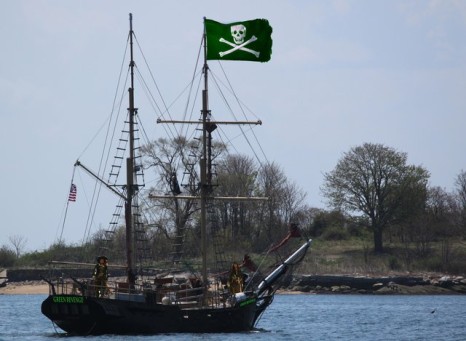 A leading issue in the marine conservation arena is the global and large-scale nature of illegal fishing. Various NGOs have made Illegal, Unreported, and Unregulated (IUU) Fishing a key target of their campaigns, and indeed, you find that IUU is generally used as a proxy term for “illegal fishing”. Just off the top of my head, I can tell you that ,,, Read the rest here 15:36
A leading issue in the marine conservation arena is the global and large-scale nature of illegal fishing. Various NGOs have made Illegal, Unreported, and Unregulated (IUU) Fishing a key target of their campaigns, and indeed, you find that IUU is generally used as a proxy term for “illegal fishing”. Just off the top of my head, I can tell you that ,,, Read the rest here 15:36
Closing Ports to Stolen Fish
 The oceans are vast and humans are small — as the monthlong hunt for a vanished Malaysian jetliner demonstrates. Think of the challenge, then, for law enforcement and fisheries managers in going after fleets of shady boats that engage in illegal, unreported and unregulated fishing. Read more here 05:20
The oceans are vast and humans are small — as the monthlong hunt for a vanished Malaysian jetliner demonstrates. Think of the challenge, then, for law enforcement and fisheries managers in going after fleets of shady boats that engage in illegal, unreported and unregulated fishing. Read more here 05:20




































